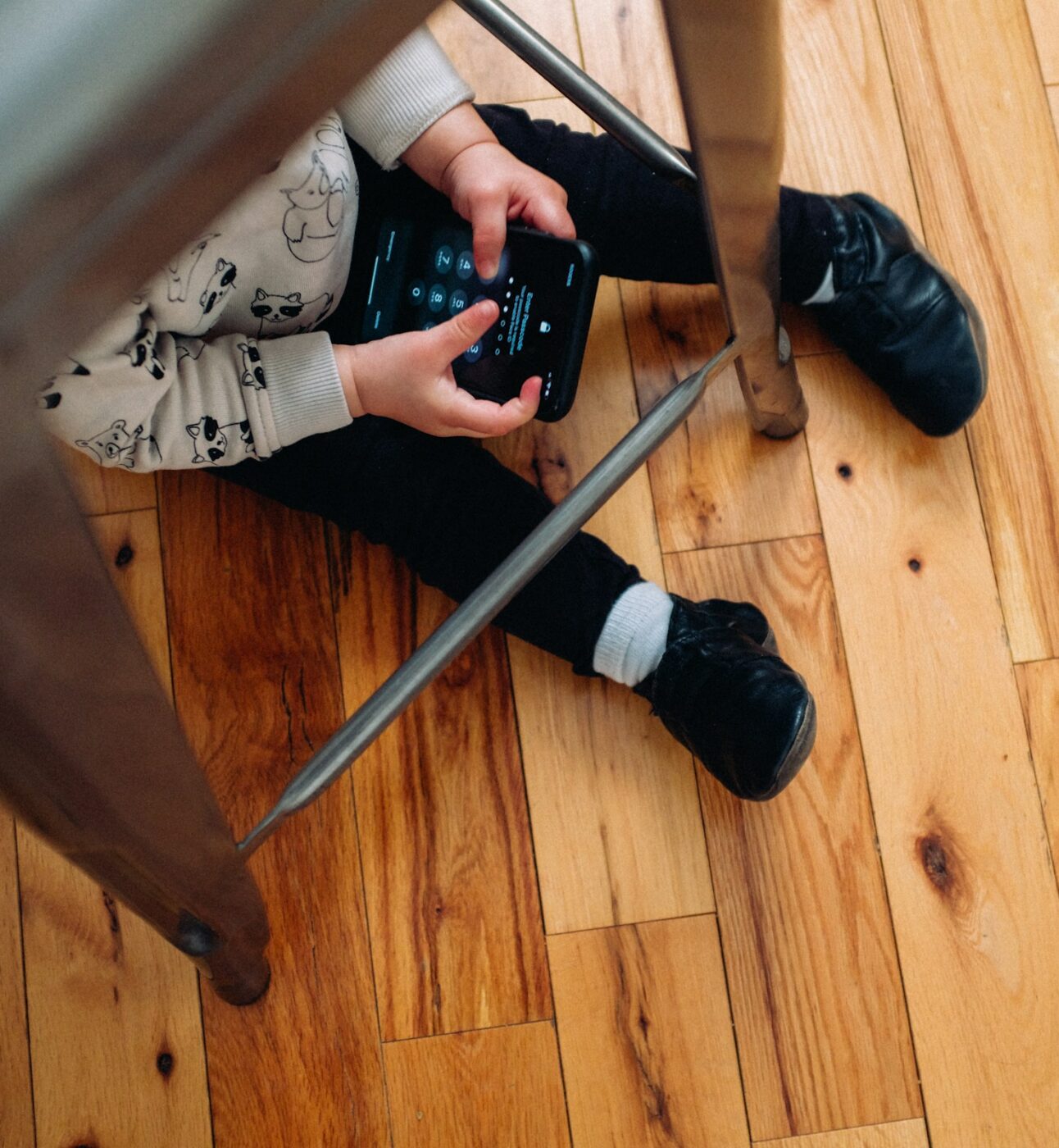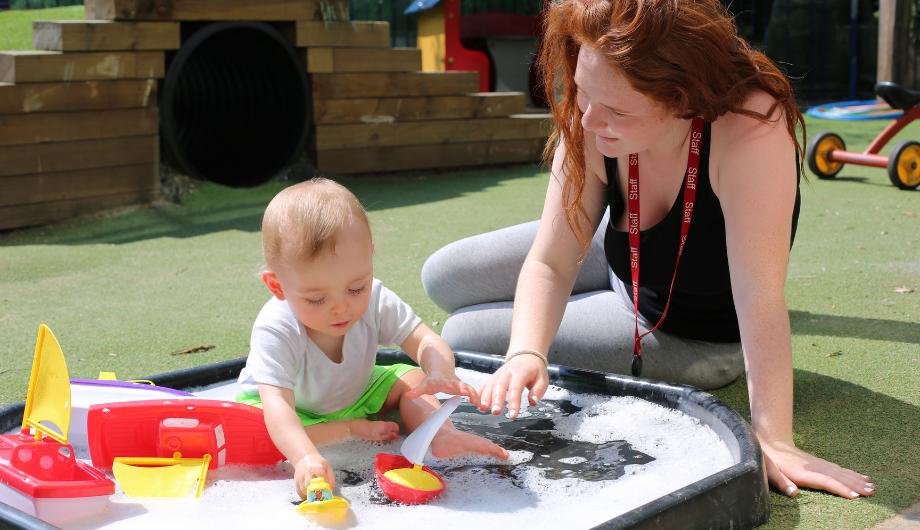
The impact of the mobile phone
It is Good to Talk! The signs of things going wrong in society are usually first evident in small children. The widespread dependence on Smartphones is…
February 5th 2015
On St Brigid’s Day, I took to the skies courtesy of Aer Lingus (under threat of being sold at the moment, another icon in trouble) to meet my youngest niece. At three weeks old, she arrived a little early, bringing cheer and delight to the O’Sullivan clan for 2015 but also forcing me to speed up my knitting as I was determined to make a green hand-knitted blanket ready to wrap her up in as she left the hospital in the care of her very proud parents. Sadly the blanket, which had been my activity while I watched Game of Thrones was a bit late and had a mistake that was too late to rectify. Clearly, I was concentrating too hard on getting to know the Starks and the Baratheons while establishing the pattern. I thought we women could multi-task with aplomb; not if you are knitting and concentrating on fantasy TV it would seem.
My new niece is a little doll, all six pounds of her, but she is interested in the world around her, listening and looking and turning her head from one side to another while lying in her bassinet. The poor little babe is at risk of becoming a research project as I keep suggesting things to my brother like the sticking out the tongue activity and baby grip. She is his first child and he wants her to succeed and so he asked me what the best thing to do is. Apart from love her and take care of her, I said talk to her. He was surprised and commented that he thought it was all down to reading. He is right in that there are research projects from the Institute of Education which suggests that children who read for pleasure are more likely to do significantly better in maths, vocabulary and spelling at school. The study also stated that those children up to the age of five who were read to regularly by their parents performed better in tests aged 16yrs than those not helped in this way.
However, for a child to become a reader we need to understand that as James Brittan so beautifully said, ‘Reading and writing float on a sea of talk’ and that is the best starting point. We can enrich and increase our vocabulary through listening to stories and hearing lovely rich words read aloud but it’s having an adult explain and translate the words that allows us to use them in our speech and ultimately our writing. I remember the singer Clifford T. Ward (one for my Desert island Discs!) singing about nonchalance. It was a word I had never heard before and I learnt how to use it after having it explained. It was a light bulb moment about how we find and use lovely words.
The conversation was timely as the two books I am currently reading ( I always have two on the go, a learning book and a relaxing book) are Victoria Hislop The Sunrise and Mary Roche’s book Developing Children’s Critical Thinking Through Picture Books . Her opening quote is one I use a lot and reminds us about the importance of parents as we set children on a path to reading.
…children are made readers on the laps of their parents
Emilie Buchwald
Her quote from the Guardian is one I shared with my brother:
‘If your attitude to language has been generated by a parent who enjoys it with you, who sits you on their lap and reads with you and tells stories to you and sings songs with you and talks about the story with you and asks you questions and answers your questions then you will grow up with a basic sense that language is fun. Language is for talking and sharing things and enjoying rhymes and songs and riddles and things like that. That’s so important. I can’t begin to express how important that is; the most important thing of all. A sense that language belongs to us, and we belong in it and that it’s fun to be there and we can take risks with it and say silly things in it and it doesn’t matter and it’s funny.’ Guardian 23 August 21013 quoted in Roche pg. 56
Mary Roche is Irish and maybe the importance of talking, conversing, discussion and dialogue is something we instinctively appreciate. I have developed the notion of the pedagogical conversation to enhance home learning because it seems a natural intervention point. Our shared approach to reading is the dialogic reading approach which Mary describes as:
“Dialogue is far more than mere conversation or idle chat. It has within it an implicit assumption that there is purpose to the talk; that meaning is being created and furthered. Care, courtesy, respect and attention are also implied. In an interactive, read aloud of a picture book, a teacher uses the reading of the book to engage in authentic dialogue with her, and with each other, about the book. Pg 49.
Mary also recognises that to teach children to read you need to be a reader yourself and also have a clear approach towards the teaching of reading. I led the LEYF Approach to Communication which demands all LEYF nurseries to be language and literacy rich environments and requires staff to use the dialogic reading methods to support children to become readers. Literacy rich includes a book corner, home nursery library, visits to the library and lots of picture books.
…the off centre way the world looks to children, to whom the world is new and who are trying to make sense out of everything adults take for granted. Quoted in Roche (2015) pg. 147
Wonderful picture books in the hands of a competent adult who can and is willing to read and re-read to the children using good book knowledge and understanding form the backbone of reading. Literacy props, drawing, music, drama poetry and oral stories all combine to extend learning. A reliable company like Letterbox Library is a great source of picture books for every occasion, age and stage. One of my favourite picture books came from there The Worst Princess by Anna Kemp and Sarah Ogilvy.
Finally, my little niece has arrived at a turbulent political time. In her cosy world she will be insulated for a while but by becoming a talker, a thinker and a reader it is critical to her being able to participate in society. The adults who love her also need to teach her to consider ideas and learn to think things through. I hope her nursery will be familiar with the lovely work of Vivien Gussin-Paley who gets us all thinking about how to help start children thinking by challenging questions such as You Can’t Say You Can’t Play.
Maybe it’s time for a LEYF nursery in Ireland? James Reilly are you interested?
Roche herself refers to the findings from Haynes (2002) who argues for teaching children to think and to philosophise as a means towards encouraging the cultivation of reasonableness and suggest that children should be encouraged to participate in society from an early age in contexts that are meaningful to them such as families, schools and other settings where they have a stake. Roche 2015 pg. 114
So, although my niece is less than a month old, it is never too soon to realise that babies are the future torch bearers for society and as Kofi Annan reminds us:
Literacy unlocks the door to learning throughout life, is essential to development and health, and opens the way for democratic participation and active participation and active citizenship.’

It is Good to Talk! The signs of things going wrong in society are usually first evident in small children. The widespread dependence on Smartphones is…

Talking Early Years – In Conversation with Dr Ger Graus The power of play is recognised within the Early Years sector as essential to children’s development. Playing is…

How Early Years staff can help children cope with imprisonment of a loved one In my life many of my connections have been made through serendipity. In this case…